
There are two kinds of people in the business world. We all recognize Type 1 as the vaunted “people person” who parlays a winning personality into lasting business relationships. All of us also have encountered Type 2, who might be labeled the “numbers cruncher.” To them, personalities are irrelevant. These folks rely on the sheer logic of dollars and cents for persuasive power. “Here's how you can make money by doing business with me” is their pitch.
Wait, there's a third kind. There are actually people out there who combine the attributes of Types 1 and 2. Personal relationships are a big part of their success, and they combine it with an equally fervent quest for data. This Type 3 personality permeates the corporate culture of F.W. Webb Co.

Webb's PVF customers span the gamut of mechanical contractors and various industrial clientele that include power plants, pulp and paper mills, breweries, chemical processing plants, biotech, pharmaceutical, utilities, wastewater treatment, shipyards and more. Although they have been involved with the PVF market going all the way back to their origins, Webb didn't become a major force until the last few decades via acquisition of a number of old-line New England PVF distributors. These include Boston's Braman Dow (established 1848), International Supply, W. L. Blake, Kennebec Supply, and Babbitt Steam - now all doing business under the Webb name.
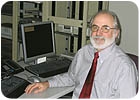
Industrial PVF gets stocked in 14 of Webb's branches that are in proximity to major industrial users. Included is a 10-acre pipe distribution center in Sturbridge, MA, named “Pipe Depot.” The company claims New England's largest inventory of pipe and tubing, ranging from 1/8 inch to 36 inch (A gigantic 408,000-sq.-ft. distribution center built last year in Amherst, NH, handles most other product lines with the exception of pipe.). They also operate a 50,000-sq.-ft. state-of-the-art pipe fabrication facility in Canton, MA, primarily for the fire protection sector.
An allied division known as Kentrol Engineered Products Group provides process controls and automated valves to the industrial market. Other Webb divisions sell specialty PVF products for bio-pharmaceutical applications, as well as industrial plastic piping products. A pump repair business rounds out quite a full-service offering to industrial users.
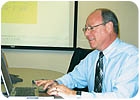
Making Use Of Technology
Industry veteran Ernie Coutermarsh is the company's senior vice president of industrial sales. He has been with F.W. Webb ever since 1969, and has presided over industrial sales since the mid-1980s.Coutermarsh leads 55 outside salespeople - “account managers” in the F.W. Webb parlance - and 125 inside salespeople spread throughout Webb's PVF branches. The biggest challenge he faces is that the industrial marketplace is in overall decline. The MRO market is the mainstay of Webb's PVF business, but like everywhere else in the country, New England's industrial base continues to evaporate due to imports and outsourcing. So, one of the few ways to achieve non-acquisition growth is by taking it away from competitors. Since every PVF distributor in the region faces the same reality of a shrinking marketplace, the situation sets up perfectly for relentless price cutting. F.W.Webb knows that this is not the way to run a business, so they've had to figure out another way to keep margins intact.
To that end, Webb draws from information technology resources matched by few distributors. They offer a variety of proprietary software packages that can interact with customer operations to manage the inventory in their storerooms or vehicles. Webb software runs over the Internet, via a server based at company headquarters in Bedford, MA.
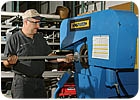
Coutermarsh has been around the PHCP distribution industry for almost four decades, but unlike many grizzled veterans, he thinks modern. He reads everything he can about computer technology “that's within my ability to comprehend,” and he hangs out quite a bit in Webb's sizable IT department, where he has employed his own people skills to make allies.
Webb's sprawling IT department departs from the standard business model. In most companies, the folks who work in IT speak their own language and carve out a separate realm of geekdom while the rest of the company concerns itself with business operations. They may have cordial diplomatic relations and interact when necessary, but for the most part IT and operations people constitute different nations, if not alien species. A large part of the reason that Webb is at the cutting edge of distribution industry technology is that their IT staff knows a lot about distribution, and the distribution people have adequate working knowledge of IT. As a result, they have a knack for putting gigabytes to practical use.
Their IT department is headed by Senior Vice President Larry Mohr, Ph.D., whose doctorate is not in computer science, but psychology. He frequently accompanies Coutermarsh on sales presentations. Another key player is Keith Walls, whose title of supply chain technology specialist doesn't adequately describe the distribution moxie he brings from more than 24 years working in sales and as a PVF branch manager for Webb.
“In recent years we've taken a close look at customer demands and asked how we can skin this cat a different way,” said Walls. “The standard practice had always been price, price, price, so prices have been beaten to death. About five or six years ago we worked with a consulting firm to come up with an activity based costing (ABC) model. Larry Mohr, working with Webb managers, then integrated a modified version into our mainframe and made it a little more robust and available to everybody.”
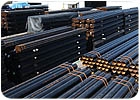
“Our intent is not to fire customers in the unprofitable deciles,” explained Walls. “Getting rid of them would mean getting rid of building space, trucks, people, etc. Instead, our focus is to figure out what we can do with these customers to put them into profitable territory.” Simultaneously, this means improving the business practices of the customer.
This requires educating unprofitable customers about acquisition and ownership costs. While second nature to distributors, plant managers are too spooked about the prospect of shutdowns to realize there can be such a thing as too much inventory or too many purchases. However, Webb's ABC probes capture and organize mountains of customer data. Plowing into it reveals absurdities such as, in one case, a 1/2-inch ball valve being ordered 255 times in a year. That's more than once a day on average, considering there are about 240 working days in a year. Using standard EOQ formulas developed by inventory management consultant Gordon Graham, Webb is able to convince many users they can be well protected against stock-outs with far fewer purchases and items on hand. Depending on customer size and other variables, these savings can range well into five- and even six-figures annually. Which would you rather have, Mr. Customer, a few more pennies off on fittings, or a 25-35% reduction in inventory costs amounting to vastly more dollars?
“We have a bunch of industrial customers that want 'just in time,'” Walls said. “But what happens with 'just in time' is their acquisition costs go through the roof, and everybody is running around with their hair on fire because something goes wrong and they didn't have what they needed. And our costs go up because instead of delivering one box of 20 once a week, we were there five times a week delivering four pieces. So prices have to go up.”
“I try to educate customers about where our own cost centers are,” he adds. “For instance, if you want to book a large order and have it shipped direct, you save us the receiving cost, stocking cost, warehousing, picking and shipping costs, so we can be much more competitive.”
Powers Of Persuasion
The activity-based costing data that is compiled in F. W. Webb reports is powerful sales ammo, but ammunition goes to waste unless targeted precisely. As noted, Webb's industrial sales growth depends on taking business away from competitors who often have long established relationships with industrial clients. Selling VMI programs in particular demands persistence - and professionalism.“The first time you negotiate with a client, he's usually not open to new ideas, only about price,” said Coutermarsh. To counter that, he and his associates try to identify all the players involved with the supply chain - not only the purchasing and maintenance people, but also the financial and IT staff whom most sales reps see mainly as obstacles. Often he'll bring along Larry Mohr, who can relate to counterparts on the IT side of the business.
“Many PVF distributors panic when faced with the possibility of losing a large volume customer, and their only reaction is to cut the price to retain the business,” said Coutermarsh. “Activity based costing gives us an alternative. If we can gain the time to demonstrate our ABC models, they usually pay attention. We can show them immediate savings from shrinking their inventory. We can organize their stockroom with bar-coded inventory, and detail the cost involved with owning 19 different kinds of valves all doing the same thing. This provides them a reason in dollars and cents as to why they should deal with us.
Keith Walls told of one integrated supply client that was on the verge of closing. Its managers were faced with a mandate to cut costs 10% across the board or get outsourced to China. Webb's data showed the firm was averaging merely $75 per invoice in their purchases from Webb. “We could get them that 10% of savings, but not at $75 an invoice and delivering every day of the week,” said Walls. Webb put the client on a program whereby the average order went up to over $500 and deliveries were reduced from daily to once a week. The factory stayed open. “We became profitable with the account, and we were able to offer them discounts based on order size. So it worked out very well for both them and us.”
People Power
F.W. Webb's corporate headquarters includes the Roger W. Pope Training Center, featuring a theater-style classroom that can seat more than 50, along with a second meeting room for up to 150 people. Both are equipped with state-of-the-art audiovisual equipment. ABC has been integrated into the training curriculum so novices learn that distribution is about cost control as well as buying and selling. “Activity-based costing is becoming a core competency for us,” said Coutermarsh. “So bringing our people to them with this kind of knowledge is part of the value-added customers get from dealing with us.”Then there's that Type 1 aspect of Webb's corporate personality. I asked Coutermarsh his opinion about an industry trend toward shedding the outside sales force. They're said to be too costly, too inefficient and too slow a way to reach customers in our instant information age, and a lot of customers consider it a waste of time to deal with them.
“We see the value of an outside salesperson,” he replied. “Sometimes you hear customers say they don't need outside people calling on them, so you pull them off, and next thing you know you lose the business. Then you ask what happened, and they say, 'nobody calls on me anymore.' Admittedly, when people say a lot of salespeople waste their time, there's truth to that. I believe what they're really saying is, 'I've got 25 people in my lobby looking for sales, and out of them, maybe five have value.' If you allow yourself to be in that group of 20, shame on you.
“We can divorce our account managers from the type of activities that don't add value,” Coutermarsh stated. “Technology helps us do that. Once we get a VMI in place, for instance, we do not need the outside salesperson for that type of business. So we try to get them involved where they can make a difference. We train our account managers so they know the application of PVF to making golf balls, or cranberry juice, or brewing beer, or whatever business the client might be in. This enables them to work with a customer on things like product application or energy efficiency. They also have objectives to determine what our level of involvement should be with a company. This is a different concept than hanging around waiting for something to break, hoping they'll call us.”
Our interview was interrupted when Coutermarsh's cell phone rang. Hearing the conversation from his end, I could tell he was concerned that an important client might misunderstand a certain aspect of a proposal. He emphasized to the caller - I'm guessing it was an account manager - how important it was to make sure the client knew exactly where they were coming from. Unwittingly, he reinforced the value of outside salespeople.
Judging from Coutermarsh's demeanor in this phone conversation, I got the impression the client hadn't come right out and expressed misgivings. Coutermarsh was reacting to a nuance, something that was said in passing, or maybe something in the client's body language or inflection that revealed doubt. Would that have been picked up in a phone call or an e-mail? Would it be noticed by someone who had never met the client before?
“Our technology and data don't always make a change happen,” Coutermarsh said. “Personal relationships still matter. The guy who comes to our counter day after day thinks of Harry working the counter as F.W. Webb. He doesn't necessarily relate to (CEO) John Pope or me.
“Occasionally, we hire a salesman who used to work for a competitor, and all of a sudden we start getting business from a company we never got business from before. Why is that? It's the relationship every time. A relationship is a high level of confidence in this company or this individual. Deal with someone for 20 years, and it becomes a hassle to call someone else. If I say ship to jobsite X, a new person doesn't know where it is, and doesn't know where our loading dock is. So even if I want to make a change, it's not easy,” Coutermarsh added.
Cultivating personal relationships is something imbedded in F.W. Webb's corporate culture. It shows up in the fact that for all their obsession with technology, they still insist on having live people answer the telephone. During my visit I departed corporate headquarters late one afternoon and noticed a new receptionist taking over the lobby post from her colleague. A shift change at what amounts to closing time? I asked Coutermarsh about this, and he explained that they want a live person answering the phone to accommodate the latest hours worked by Webb's branches and various clients. Voice mail wouldn't be acceptable even after official working hours.
“I think there's still value in hand-holding and face-to-face relationships,” commented President Jeff Pope. “The Internet may be growing in popularity, but people still want to talk to people.”
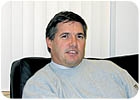
F.W. Webb To Sponsor Boston Red Sox
When doubles and triples start rattling around the outfield wall at Boston's Fenway Park next summer, many viewers from our industry will do a double-take and await the replay to see if they really saw what they thought they saw. Yep, it will be the logo of F.W. Webb Co., which has signed on as a “2006 Official Supplier to the Boston Red Sox.”It's an unusual branding initiative for a PHCP distributor - make that unheard of. President Jeff Pope confided that he's by no means certain the expensive promotional gambit will pay off, at least not in any measurable way. But what the heck, you have to try new things and last year was the best ever for the company. “I have a legacy to follow,” he remarked, as he discussed a future that includes hitting the magic $1 billion mark before too many years pass. That would require doubling last year's record sales, but Pope thinks it's achievable.
Although there's likely to be some contiguous territorial growth, Webb's leaders hold no designs on being a national chain. “I've heard estimates of our current territory being about a $4 billion marketplace, so there's still quite a bit to be gleaned from where we are,” said Pope. “Even $1 billion in sales would be only 25% of the market, so there's much room to grow.”
Building name recognition via the region's most popular sports franchise may not be a bad way to go about it. Especially now that the “Bambino's Curse” was removed by the 2004 World Series Champs.
We forlorn Cubs fans watch in envy.

F.W. Webb's Newest PVF Initiatives
“Grow or die” is one of Peter Drucker's most famous maxims, and F.W. Webb Co. intends to stay above ground for as long as possible. Since this century turned, they have gotten involved in several new ventures that expand offerings to their industrial PVF client base. They are:
“We constantly ask ourselves, how can we remain relevant to our customers?” said Coutermarsh. “One way is to be sure you have more than one thing to sell them.”
